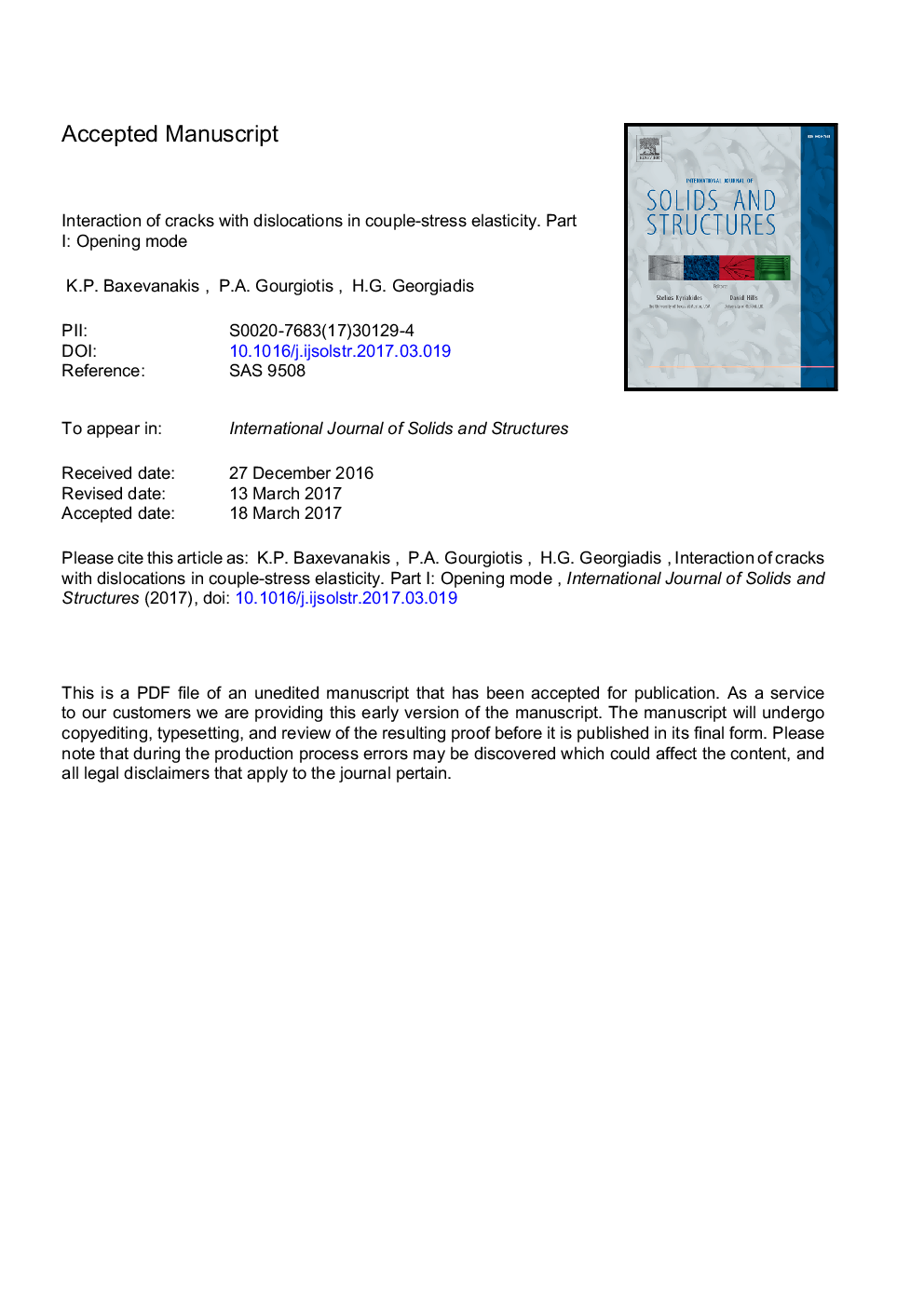| Article ID | Journal | Published Year | Pages | File Type |
|---|---|---|---|---|
| 4922457 | International Journal of Solids and Structures | 2017 | 42 Pages |
Abstract
In the present work the interaction of a finite-length crack with a discrete climb dislocation is studied within the framework of the generalized continuum theory of couple-stress elasticity. The climb dislocation is placed on the crack plane resulting in an opening crack mode. For the solution of the crack problem the distributed dislocation technique is employed. Due to the nature of the boundary conditions that arise in couple-stress elasticity, the crack is modeled by a continuous distribution of translational and rotational defects. The distribution of these defects produces both stresses and couple stresses in the body. It is shown that the interaction problem is governed by a system of coupled singular integral equations with both Cauchy and logarithmic kernels which is solved numerically using an appropriate collocation technique. The results for the near-tip fields differ in several respects from the predictions of classical fracture mechanics. It is shown that a cracked couple-stress solid behaves in a more rigid way compared to one governed by classical elasticity. Moreover, the evaluation of the energy release rate in the crack-tips and the associated driving force exerted on the dislocation reveals an interesting 'alternating' behavior between strengthening and weakening of the crack, depending on the distance of the crack-tip to the dislocation core as well as on ratio of the material length, introduced by the couple-stress theory, to the length of the crack.
Related Topics
Physical Sciences and Engineering
Engineering
Civil and Structural Engineering
Authors
K.P. Baxevanakis, P.A. Gourgiotis, H.G. Georgiadis,
